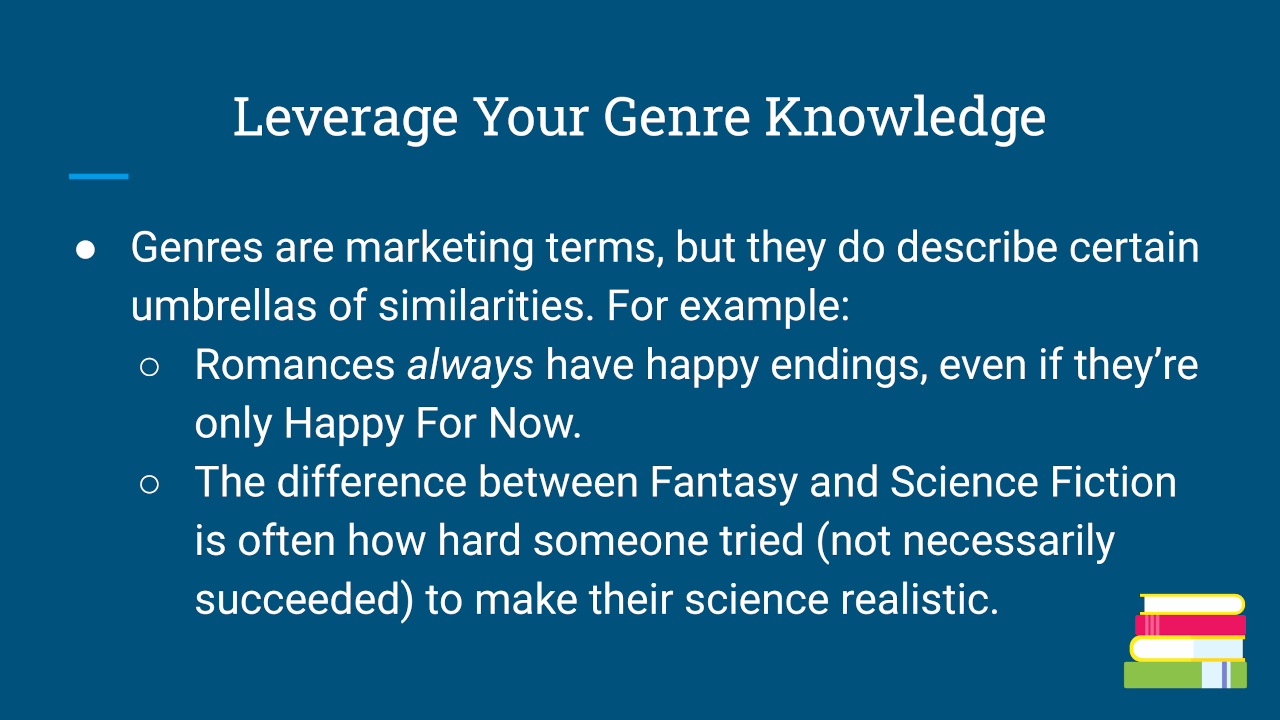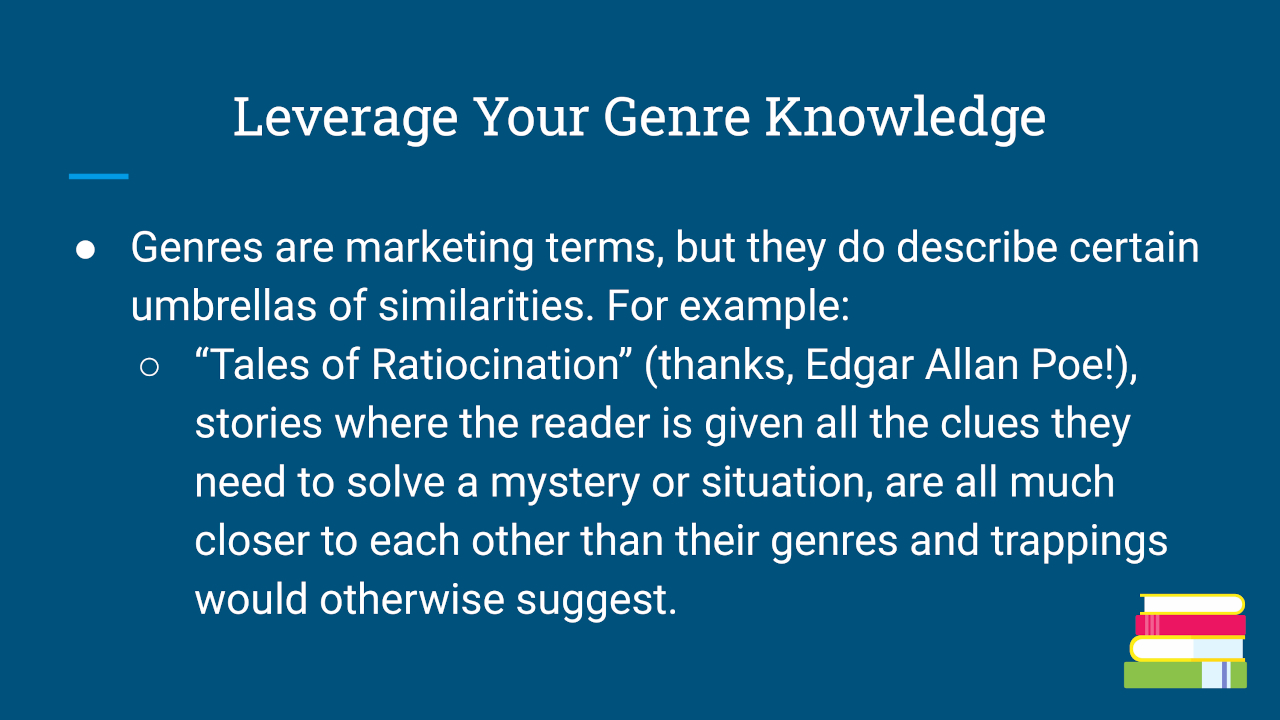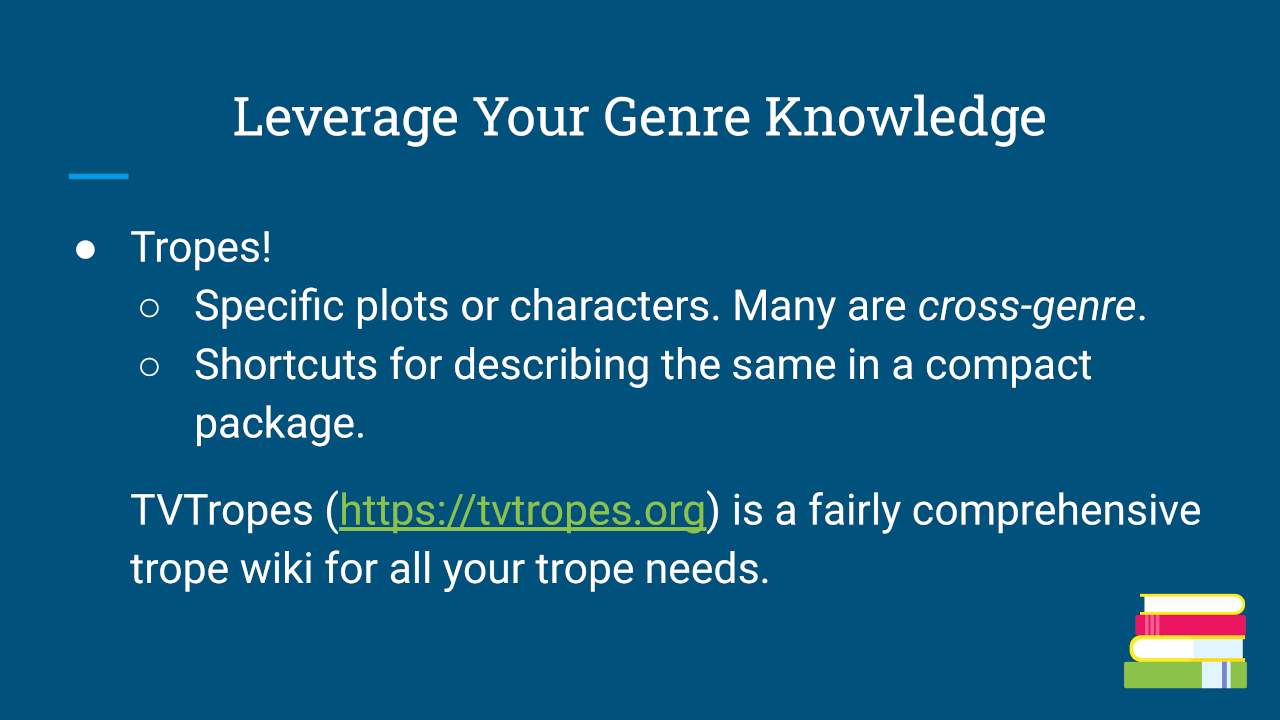
One of the first ways that people think about books and book recommendations is the genre that a book falls into. Genres, for the most part, are as much about marketing categories and decisions about where to put a book in a bookstore rather than rigid boundaries, especially with the increased amount of multi-genre or genre-blending works that are harder and harder to classify. All the same, if you have a general feel for what genre a book lands in, you have a basic framework to layer more personalized knowledge on top of so that you can steer someone toward the part of the genre they're likely to enjoy first.
There are some rules, however, that can't be violated and still be part of a particular genre. Romances, for example, require a happy ending at the end of the book. It doesn't have to be a Happily Ever After (HEA), but if it isn't, there had better be a Happy For Now (HFN) at the end, or it's not going to be accepted as a romance.
The fantasy and Science Fiction genres have combined writer's associations and usually are on the same convention circuit , regardless of what specific purists may tell you about how they're entirely separate things, based on whether they have robots and rayguns or dragons and swords. Often times, the first decision to make about whether something is fantasy or science fiction is how much effort they've put in to making the science (or the magic systems) realistic, logical, and plausible.
The style of the writing is also often a way of differentiating between the two genres, as Science Fiction tends to have a different narrative pace and characterization than Fantasy does, such that you can have fantasies with robots and science fiction with swords and dragons. Genres are weird, okay?

We don't use the term much any more in genre fiction, but Edgar Allan Poe described a type of story, called a Tale of Ratiocination, where the reader is given all of the clues they need to solve the mystery or the situation that the protagonists find themselves in, so that they can try to discover the solution before the characters and the narrative reveal it to them. Most people would take that description and apply it to the mystery genre, where it fits plenty of them, but there are a lot of stories outside the mystery genre that are absolutely Tales of Ratiocination, and a person who likes that particular style will probably enjoy books that follow that same style, regardless of what their genre trappings or outward elements are. Style and narrative structure is often a way of figuring out the request of "Well, I've read out your [Z] section and most of your Interlibrary Loan capacity, too, so what else have you got?" Talking about the things that work across the genres can be the way that someone picks up a new book or author, or even genre, to continue their reading journey with.

And speaking of things that are cross-genre, a working knowledge of trope language is a big help when it comes to figuring out what someone might like, within genres and across them. Trope language allows you to compress what would otherwise be a big explanation of something into a few words. I tend to use the trope language of TVTropes, a pop-culture wiki dedicated to listing and explaining the tropes in play in various works, in all the permutations that those tropes might appear, including their inversion, subversion, or tangential shifts away from.